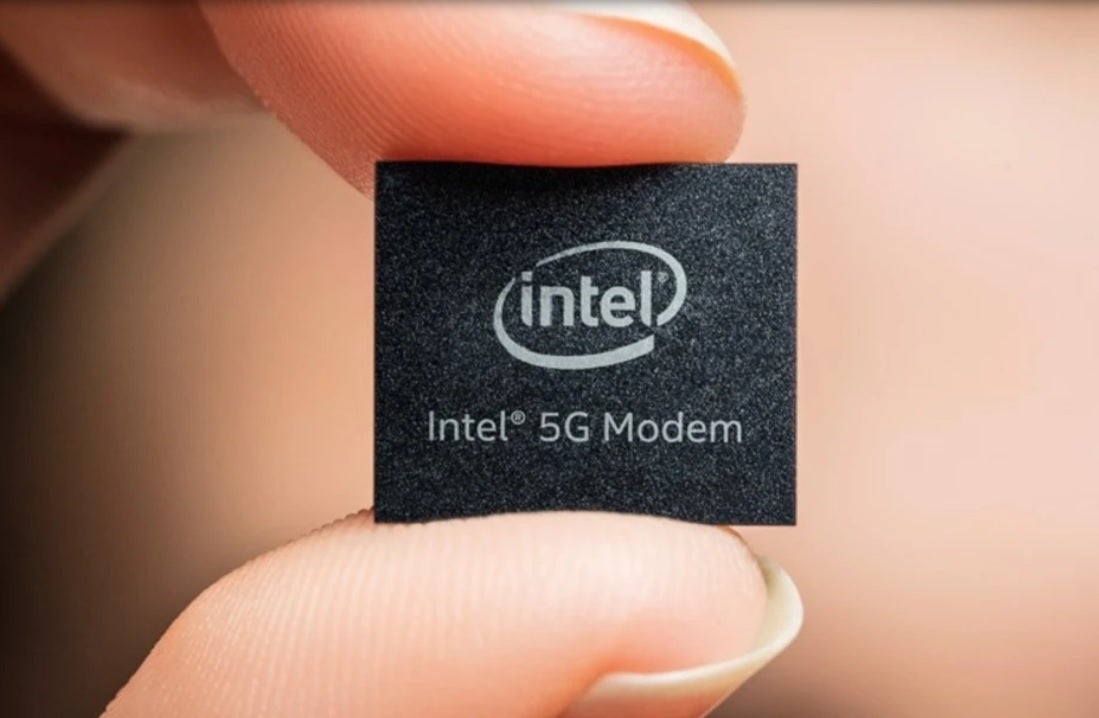When
Apple announced a surprise deal with Qualcomm during opening statements for a trial between the two companies back in 2019, Apple was desperate. The plan it had to avoid Qualcomm by using a new 5G smartphone modem developed by Intel was not going well and besides, the company had already praised the quality of Qualcomm’s modems while testifying in court under oath. So Apple cratered, giving in to Qualcomm’s controversial “no license, no chips” policy.
Apple spent $1 billion to purchase most of Intel’s smartphone modem business
Apple originally asked Intel to make a 5G modem chip for the iPhone to avoid dealing with Qualcomm
While Apple has been using Qualcomm’s 5G modem chips on all iPhone units starting with 2020’s iPhone 12 series, behind the scenes it has been working on designing its own component. And Apple had originally hoped to equip 80% of next year’s iPhone 15 line with its in-house 5G modem chip leaving Qualcomm to supply the remaining 20%. But there is one thing about the San Diego-based chip designer that you should understand; when it comes to generating revenue from silicon, no one is better.
So Qualcomm wasn’t going to take this huge drop-off in iPhone business sitting down.
The company reportedly has a pair of patents that prevent Apple from producing its own modem chip (which was supposedly going to be manufactured by TSMC using the enhanced 5nm process node that it calls 4nm). Apple hoped to get the U.S. Supreme Court to invalidate the two Qualcomm patents that were standing in its way, but the Supreme Court failed to grant Apple the writ of certiorari required for a case to be argued in front of the highest court in the land.
In a note to clients seen by
MacRumors, Haitong International Securities analyst Jeff Pu writes that in 2024 Apple is expected to use Qualcomm’s as of yet unannounced Snapdragon X75 5G modem manufactured by TSMC using the foundry’s 4nm process node. Currently, the iPhone 14 series uses the Snapdragon X65 5G modem.
The Snapdragon X70 5G modem is expected to be employed by next year’s iPhone 15 models and will deliver download data speeds as fast as 10Gbps. It also will use AI to improve coverage, increase the quality of the signals it receives, reduce latency, and also deliver 60% more energy efficiency.
Apple could continue using Qualcomm’s 5G modem until 2025 at the earliest
So when will Apple start using its own 5G modem chips? In answering this question, the only answer we can give based on Pu’s note is that 2025 would be the first possible year that Apple uses its own 5G modem chips in the iPhone. It could actually be later than that, but most likely not any earlier. And surely you’re wondering why would Apple go through all of this trouble to design its own 5G modem when Qualcomm’s are widely considered to be the best in the mobile business.
As you might have figured out by now,
Apple likes to be in control over all facets of its most important product. It also doesn’t want to have to rely on another company to supply it with modem chips and be at the mercy of that company when it comes to pricing and availability. And that certainly applies to a company like Qualcomm whose chip-selling process has come under some scrutiny by the Federal Trade Commission (FTC).
While Judge Lucy Koh originally ruled against Qualcomm in 2019 giving phone manufacturers some hope that Qualcomm would have to change some of its policies,
the ninth circuit overturned the decision two years later and the FTC decided not to ask the Supreme Court to step in.





